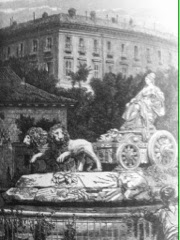The imperative stroke, elusive stroke. Mini stroke. Little stroke. Pre stroke. Warning stroke. These are all terms used to describe a transient ischemic attack, or TIA, which causes the symptoms, but not the damage of a stroke. That, which more or less says you are warned.
Humankind's chief fault is that they have so many small ones.
No matter what you call it, a TIA is a big red warning flag that indicates you are at major risk for a more serious stroke.
Are you able to manage your heart condition? Fools can find fault, but they can't act anymore wisely.
TIA and Stroke.
A TIA, like an ischemic stroke, is caused by a blood clot blocking an artery and preventing blood flow to an area of the brain. The blockage during a TIA is only temporary, usually causing symptoms for no more than five minutes, and typically for only around a minute, although they may sometimes last longer.
Better a diamond with a flaw than a pebble without one.
Because blood flow to the brain is restored after the TIA, no damage is done, and the person having a TIA doesn't suffer any lasting side effects. During a stroke, the blood supply to the brain is cut off for a significant period of time, causing damage to brain cells and a number of complications and side effects.
If you are prepared, then you are able to feel confident.
Not everyone who has a stroke will have a TIA to warn them beforehand. And not everyone who has a TIA will go on to have a stroke, nevertheless many will. More than one third of those who have at least one TIA will have a stroke.
A man's personal defects will commonly have with the rest of the world precisely that importance which they have to himself. If he makes light of them, so will other men.
A TIA can't predict when a stroke will occur, however; it only serves as a warning flag of your increased risk of a stroke. But that doesn't mean that a TIA doesn't require medical attention. A stroke can occur any time after a TIA but most often will strike within a year.
It is not the cares of today, but the cares of tomorrow that weigh a man down. For the needs of today we have corresponding strength given. For the morrow we are told to trust. It is not ours yet.
The risk factors for a TIA are similar to those of a stroke and include:
High blood pressure and high cholesterol. Heart disease, atherosclerosis (clogging or hardening of the arteries), diabetes, sickle cell anaemia, sleep apnea, migraine, and artery diseases. Poor nutrition, lack of exercise, obesity, alcohol abuse, and cigarette smoking. Family history of stroke or TIA. Being older than age 55. Being African-American.
People who have these risk factors should make lifestyle changes that can reduce the risks that can be controlled and also improve overall health, thus lowering your risk of TIA.
It generally happens that assurance keeps an even pace with ability.
The symptoms and warning signs that you're having a TIA are similar to those of a stroke, but remember that a TIA doesn't last as long and doesn't leave lasting effects.
To spot a TIA, look for:
Speech problems, slurred speech, or difficulty speaking or comprehending
Paralysis and weakness, which may occur in a leg or arm or in the face, usually on one side of the body.
Vision problems, such as double vision or loss of vision (may be in one eye or both). Balance problems, including losing your balance, difficulty walking, and losing coordination. Headache, which is usually severe and with no known cause.
When you engage in systematic, purposeful actin, using and stretching your abilities to the maximum, you cannot help but feel positive and confident abut yourself.
As with symptoms of a possible stroke, you should seek immediate medical evaluation if you notice symptoms of a possible TIA because you never know how far behind a stroke may be. If you spot and treat a TIA early, you can reduce your risk of having a more serious stroke that could cause significant damage.
Only when you have reached a solitude of stillness and see behind the disguise of desolation, your eyes open to nature's pure beauty.

No comments:
Post a Comment